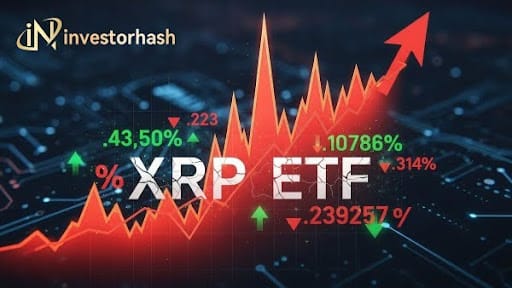Silk Road Founder Memorabilia Sells for Over $1.8 Million in Cryptocurrency

Cointelegraph reports that Ross Ulbricht's auction of personal belongings generated more than $1.8 million in Bitcoin through the cryptocurrency marketplace Scarce City. The Silk Road founder, who received a presidential pardon from Donald Trump in January 2025, sold items spanning his pre-arrest life and 11-year prison sentence. The auction featured personal effects from before his 2013 arrest, including a sleeping bag, backpack, and drum, alongside prison memorabilia such as clothing, notebooks, and collaborative paintings created during incarceration.
Ulbricht's final prison identification card commanded the highest price at 11 Bitcoin, worth approximately $1.1 million at current exchange rates. The card displayed Ulbricht smiling despite his circumstances, with the seller commenting that his joy originated from within. A collaborative painting created with fellow prisoner "Omega" secured 1.01 Bitcoin, representing artwork that symbolized hope for better circumstances ahead.
Trump Administration Reshapes Cryptocurrency Regulatory Environment
The auction occurs amid substantial regulatory changes under the Trump administration's pro-cryptocurrency stance. Reuters documented President Trump's executive order establishing a cryptocurrency working group tasked with proposing new digital asset regulations and exploring a national cryptocurrency stockpile. The order also protected banking services for crypto companies and banned central bank digital currencies that could compete with existing cryptocurrencies.
CNBC reported that cryptocurrency executives now anticipate comprehensive federal rules for the industry passing this year. Coinbase CEO Brian Armstrong described the current environment as the "dawn of a new day" for cryptocurrency regulation, contrasting sharply with the previous administration's aggressive enforcement actions.
The Securities and Exchange Commission established a new crypto task force aimed at developing clear regulatory frameworks for crypto assets. Grant Thornton analysis shows the administration created an interdepartmental working group with a six-month deadline to form regulatory and legislative recommendations, chaired by venture capitalist David Sacks.
Digital Collectibles Market Experiences Rapid Growth
Ulbricht's auction reflects broader trends in the digital collectibles market, which Business Research Insights valued at approximately $9.37 billion in 2024 with projections reaching $48.64 billion by 2033. This represents a compound annual growth rate of about 20.1% from 2024 to 2033. Digital collectibles encompass non-fungible artifacts stored on blockchain platforms, addressing authentication, copyright, and scarcity concerns through cryptographic tokens.
Archive Market Research estimates the 2025 market size at $15 billion, driven by expanding metaverse demand for virtual assets, increased accessibility of NFT platforms, and growing acceptance of digital ownership as a legitimate asset class among individual collectors and institutional investors. Cultural relics collectibles, representing digital versions of historical artifacts, could exceed $500 million in value.
The auction demonstrates how personal artifacts from cryptocurrency history command premium prices from collectors seeking pieces of digital culture heritage. Bidders deposited 1% of their bid as collateral, with last-minute bids resetting countdown timers to ensure fair competition.
Broader Implications for Cryptocurrency and Traditional Finance
Blockchain analytics firm Arkham Intelligence confirmed that approximately 430 Bitcoin, valued at around $47 million, remain in wallets likely connected to Ulbricht. These wallets stayed inactive for over 13 years and were never seized by authorities, representing substantial dormant cryptocurrency holdings that could potentially return to circulation.
The auction success reflects growing mainstream acceptance of cryptocurrency as a payment method for high-value transactions. Bitcoin's role as the exclusive currency for the marketplace demonstrates institutional confidence in cryptocurrency's stability and utility for significant financial exchanges.
Traditional financial institutions observe how cryptocurrency integration affects established markets. The Federal Reserve remains the primary regulatory holdout with key restrictions on crypto banking still active, according to industry analysis. However, bank regulators have begun exploring blockchain-based payment systems as part of broader financial technology adoption.
The regulatory shift toward cryptocurrency acceptance could encourage American professionals who relocated abroad due to previous hostile regulatory environments to return and develop blockchain technologies domestically. This potential talent repatriation represents significant implications for American technological competitiveness in the global cryptocurrency ecosystem.
Related Reading on BTC Peers
For comprehensive analysis of global Bitcoin policy developments, visit BTC Peers Global Bitcoin Policy Index. This resource provides detailed coverage of regulatory frameworks, policy changes, and government attitudes toward Bitcoin across different jurisdictions worldwide. Readers will gain insights into how various countries approach Bitcoin regulation, comparative policy analysis, and emerging trends in global cryptocurrency governance that affect market dynamics and institutional adoption rates.




